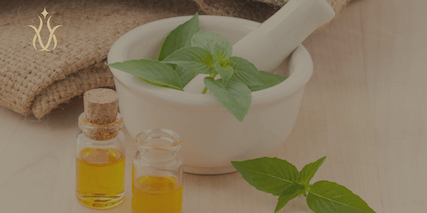Explore the transformative power of aromatherapy with our detailed guide to using essential oils. Whether you’re seeking relaxation, enhanced focus, or improved sleep, essential oils can play a pivotal role in achieving overall wellness. Discover how to select the right oils for your needs, the best methods for application, and tips for blending scents.
We’ll take you through safety guidelines, the science behind aromatherapy, and how these potent oils can positively impact your mental and physical health. Join us in unlocking the secrets to the ultimate aromatherapy experience and start benefiting from the natural power of essential oils today.
Introduction
Using the natural essences of plants, aromatherapy can offer various health benefits, ranging from stress reduction to enhanced cognitive function. In this article, we dive into the heart of aromatherapy, exploring how essential oils make it tick.
Understanding Aromatherapy
Aromatherapy, as its name suggests, uses aromatic plant extracts, chiefly pure essential oils, to promote health and well-being. Derived from various plant parts—leaves, stems, flowers, roots—essential oils carry the “essence” of the plant’s therapeutic properties, encapsulated in their fragrance.
Aromatherapy works in two main ways: through inhalation and skin absorption. As you breathe in the vapours of essential oils, the fragrance molecules travel to the olfactory system in your brain, influencing emotional and physiological responses. Moreover, when pure essential oils are applied topically, their therapeutic compounds can be absorbed through the skin, exerting localised effects.
The History and Global Influence of Aromatherapy
Aromatherapy might seem like a modern phenomenon, but it’s as old as civilisation. From Ancient Egypt to modern-day France, the practice of using aromatic plant compounds for therapeutic purposes has been prevalent in cultures worldwide.
Historically, the Egyptians are often credited with pioneering the use of essential oils. They used aromatherapy oils for a variety of purposes, from religious ceremonies and cosmetics to medicinal treatments. For example, they would use myrrh and frankincense for embalming and cedar wood oil for cosmetic purposes.
But it’s not only the Egyptians who recognised the potential benefits of natural essential oils. In Ancient Greece, the philosopher Hippocrates touted the use of aromatic baths and massage oil to promote health and well-being.
Moving Eastwards, India’s rich heritage of Ayurvedic medicine also showcases the use of essential oils. The ancient texts of Ayurveda detail numerous botanicals, including their aromatic uses for balancing the body’s energy systems.
In modern times, France is regarded as the birthplace of contemporary aromatherapy. French chemist René-Maurice Gattefossé coined the term ‘aromatherapie’ in the early 20th century after observing the healing properties of lavender essential oil on a burn.
Today, aromatherapy is a globally recognised complementary therapy practised across continents, with each culture adding its unique touch. It’s more than just pleasant scents; it’s a testament to the timeless bond between humans and the natural world.
The Science Behind Aromatherapy
Delving deeper, we find a rich tapestry of scientific evidence supporting the benefits of aromatherapy. A study published in the Journal of Alternative and Complementary Medicine found that aromatherapy can significantly reduce stress and anxiety levels, supporting its common use for relaxation and stress relief.
Moreover, the impact of aromatherapy oils goes beyond mental health. For instance, research in the International Journal of Molecular Sciences demonstrated that certain essential oils can exhibit potent antimicrobial properties, potentially supporting immune health.
From easing stress to bolstering physical health, aromatherapy’s potential benefits are vast. However, like any health practice, it requires knowledge and understanding. Our next sections delve into specific essential oils and their roles in aromatherapy.
Aromatherapy for Mental Health
Venturing into the realm of mental health, aromatherapy emerges as a potent ally. Whether you’re battling daily stress, anxiety, bouts of depression, or seeking better sleep quality, essential oils’ olfactory stimulation can help bring tranquillity and balance.
Take lavender essential oil, for instance. Revered for its calming properties, it’s often used to alleviate anxiety and promote restful sleep. A study in The Lancet Psychiatry demonstrated that lavender essential oil can be as effective as certain anti-anxiety medications but with fewer side effects.
Additionally, bergamot essential oil is showing promise for depression. A study published in the Journal of Complementary Therapies in Medicine demonstrated that bergamot aromatherapy significantly reduced depressive symptoms in participants.
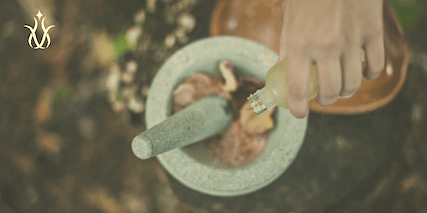
Aromatherapy for Physical Health
Shifting our focus to physical well-being, aromatherapy brings a myriad of benefits to the table. Essential oils, with their unique therapeutic properties, can assist with pain relief, improve digestion, and quell inflammation.
For example, peppermint essential oil is renowned for its analgesic effects. Research in the European Journal of Medical Research indicates that topical application of peppermint oil can significantly reduce headache pain.
Meanwhile, with its warming and anti-inflammatory effects, Ginger essential oil can support digestive health. A study in the Journal of the Medical Association of Thailand found that aromatherapy massage oil using ginger essential oil significantly reduced abdominal bloating and discomfort in participants.
Incorporating aromatherapy into our health regimen is a natural, complementary approach that leverages the potent healing power of plants.
Best Essential Oils Commonly Used in Aromatherapy
Certain pure essential oils have carved out a significant niche for themselves due to their potent benefits. Here’s an overview of some star players and their scientifically-backed advantages:
Lavender Oil: This floral essential oil is synonymous with relaxation. A research study published in The Lancet Psychiatry showcased the efficacy of lavender oil in reducing anxiety and inducing sleep.
Tea Tree Oil: Boasting potent antimicrobial properties, Tea Tree oil is beneficial for respiratory health. A study in the British Medical Journal noted the effectiveness of Tea Tree oil in easing bronchitis symptoms. Tea tree oil is also frequently used to treat fungal skin conditions, including athlete’s foot, ringworm, and nail fungus. In shampoos or scalp treatments, Tree Tea oil can alleviate dandruff and soothe an itchy or flaky scalp.
One of the most common uses of Tea Tree oil is for acne. Applied topically, Tea Tree oil can help reduce inflammation and the severity of breakouts. Applying diluted tea tree oil can also help reduce the itching and inflammation associated with insect bites and stings. Due to its antibacterial properties, diluted tea tree oil can act as a mouthwash, helping to combat bad breath and oral bacteria. However, it’s essential to spit it out after use and avoid swallowing.
Peppermint Oil: Its refreshing scent makes it perfect for combating fatigue and boosting focus. Research in the International Journal of Neuroscience showed that Peppermint oil enhanced memory and alertness.
Ylang Ylang Oil: Known for its soothing properties, Ylang Ylang oil can help reduce stress and improve mood. The Journal of Health Research documented its positive effects on self-esteem and mood.
Jasmine Oil: The floral scent of jasmine oil is beneficial for promoting feelings of optimism and boosting energy. An article in Natural Product Communications reported its stimulating and mood-enhancing effects.
Lemongrass oil: The invigorating scent of lemongrass oil is believed to relieve anxiety, combat fatigue, and uplift spirits. It’s a popular choice in aromatherapy sessions for its stress-relieving properties. Traditionally, lemongrass oil has been used to alleviate pain, especially headaches and pain related to muscle strains or rheumatism.
Eucalyptus oil: The oil’s key component, eucalyptol (or 1,8-cineole), is known to assist in clearing nasal congestion, making it a popular ingredient in cough syrups, rubs, and lozenges. Eucalyptus oil has analgesic and anti-inflammatory properties, which can help alleviate muscle pain, soreness, and arthritis-related discomfort. It’s often found in muscle rubs and ointments.
Due to its antimicrobial and antiseptic qualities, eucalyptus oil is sometimes used to treat cuts, burns, and insect bites and as an ingredient in mouthwashes, as it can help combat dental plaque, cavities, and gum diseases.
Lemon oil: Its uplifting and revitalizing fragrance can enhance mood, alleviate stress, and provide a general sense of well-being. Due to their astringent and antiseptic properties, citrus oils are occasionally added to skin care routines to tackle oily skin, brighten the complexion, and rejuvenate dull skin. However, caution is advised when topically applying lemon oil as it can increase photosensitivity.
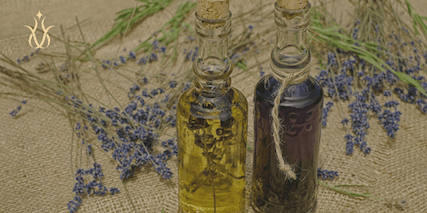
How to Use Essential Oils for Aromatherapy
While pure essential oils pack a punch of benefits, it’s crucial to use them correctly to harness their full potential. Here are a few methods to consider:
Diffusion: This involves using an essential oils diffuser to disperse the diffuser oil into the air. It’s an excellent method for purifying the air and creating a calming atmosphere.
Inhalation: Inhaling essential oils directly, such as from a bottle or cotton pad, provides immediate access to their benefits, especially for respiratory health.
Massage: Blending essential oils with carrier oils (like coconut or almond oil) allows for topical application. Massage oil is perfect for treating sore muscles or skin conditions.
Essential Oil Blends
The magic of aromatherapy often shines brightest when we blend different essential oils together. It’s like crafting a symphony of scents that not only smells divine but also targets specific needs. Here are a couple of blends to get you started:
For Relaxation: A blend of lavender, chamomile, and ylang ylang can create a calming atmosphere perfect for unwinding after a long day.
For Energy Boosting: If you’re seeking a pick-me-up, try blending peppermint, lemon, and rosemary essential oils. This invigorating combination can help shake off fatigue and boost focus.
Remember, aromatherapy is a personal journey, and these blends can be tweaked to your preference. So, embark on your aromatic journey and let nature’s fragrances uplift your spirit.
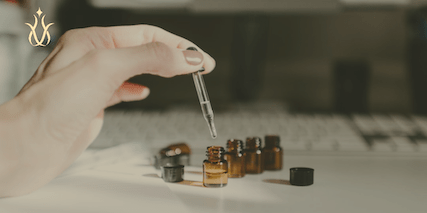
DIY Aromatherapy
Fancy a personal touch to your aromatherapy experience? Creating homemade essential oils diffusers and other aromatherapy methods is simpler than you might think.
One easy method is creating a room spray. Combine distilled water, witch hazel, and your favourite diffuser oils in a spray bottle, then spritz around your room for a refreshing scent.
A homemade reed diffuser is another excellent option. Fill a glass container with carrier oil (like almond or safflower oil) and add a few drops of your chosen essential oils. Insert rattan reeds, which will soak up the oil and diffuse the scent into your room.
Lastly, consider making a DIY bath oil. Mix a soothing essential oil like lavender with a carrier oil and add to your bath for a relaxing and skin-nourishing soak.
Safety Guidelines for Using Essential Oils
While essential oils offer numerous benefits, it’s vital to use them safely. As potent concentrations, they can cause adverse reactions if not properly used.
Firstly, never apply undiluted pure essential oils directly to your skin. Always dilute them with a carrier oil to prevent skin irritation.
Secondly, perform a patch test before using a new essential body oil. Apply a small amount to your skin and wait 24 hours to see if any allergic reaction occurs.
Lastly, if you are pregnant, breastfeeding, or have a pre-existing health condition, consult a healthcare professional before using essential oils.
Choosing High-Quality Essential Oils for Aromatherapy
Selecting the right essential oil is critical to ensuring the effectiveness and safety of your aromatherapy experience.
When choosing essential oils, opt for brands that are 100% pure and free from synthetic additives. This ensures you get the full benefits of the oil without the risk of unwanted side effects.
Also, consider choosing organic essential oils. Organic essential oils are made from plant material grown without pesticides or harmful chemicals, making them a safer and more eco-friendly option.
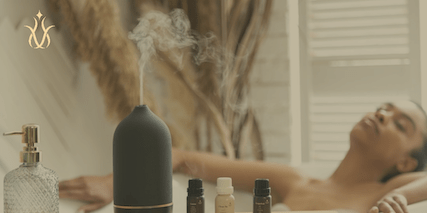
Conclusion
We’ve traced the roots of aromatherapy from ancient civilisations to modern therapeutic practices, explored the science behind the aromas, and detailed how essential oils can support both mental and physical health. Moreover, we’ve delved into the specific uses of different oils in aromatherapy and shared practical advice on how to blend and use these potent plant extracts safely.
But remember, the effectiveness of aromatherapy is highly individual. What works for one person might not work for another. With patience, an open mind, and due diligence, you can discover which essential oils and practices resonate with you. Always remember to opt for high-quality, pure essential oils and never disregard the importance of safety.
Aromatherapy isn’t a panacea, but it can be a powerful tool in your wellness arsenal when used responsibly. So why not take a deep breath and let the power of nature’s aromas enhance your well-being?
Frequently Asked Questions
What are the Benefits of Essential Oils?
Essential oils offer a wide range of benefits, including:
- Promoting relaxation
- Reducing stress
- Improving sleep
- Boosting mood
- Soothing aches and pains
- Enhancing skin health
- Supporting respiratory health
Each essential oil possesses unique properties that can target specific concerns and provide natural solutions for various wellness needs. It’s important to note that individual results may vary, and it’s advisable to consult a healthcare professional before using essential oils for specific purposes.
What are Best Smelling Essential Oils?
The choice of the best-smelling essential oils is subjective and can vary from person to person. However, some popular essential oils known for their pleasant aroma include:
- Lavender oil
- Rose oil
- Jasmine oil
- Ylang-ylang oil
- Bergamot oil
- Sweet orange oil
- Peppermint oil
- Lemon oil
- Eucalyptus oil
These essential oils offer delightful scents that can help create a soothing and aromatic atmosphere. It’s always a good idea to test different essential oils and find the scents that you personally find most appealing and enjoyable.
Can I apply Essential Oils Directly to My Skin?
While some pure essential oils can be applied directly to the skin, most need to be diluted with a carrier oil, like coconut or almond oil, to prevent irritation. Always perform a patch test first to avoid any allergic reactions.
Can I Ingest Essential Oils?
Most pure essential oils should not be ingested without proper knowledge or supervision from a health professional. Some oils can be toxic if ingested and can cause harm if not used correctly.
Are There Any Risks or Side Effects to Using Essential Oils?
While essential oils are generally safe when used correctly, they can cause side effects like skin irritation, allergies, or even more severe reactions. It’s important to always follow usage instructions and consult with a healthcare professional if you’re unsure.
Can I Use Essential Oils if I’m Pregnant or Breastfeeding?
Certain essential oils should be avoided during pregnancy or breastfeeding. Always consult your healthcare provider before starting any new treatments during this time.
Do Essential Oils Expire?
Yes, pure essential oils can degrade over time, leading to a loss of efficacy and potential skin irritation. Store your oils in a cool, dark place and check the manufacturer’s expiration date.
What are the Best Brands of Essential Oils?
Essential oils come in a wide range of quality, so it’s essential to choose a reliable brand that ensures the purity and potency of their oils. Here are some of the best essential oil brands known for their quality:
doTERRA is known for its Certified Pure Therapeutic Grade (CPTG) natural essential oils. Their oils are sourced globally and subjected to rigorous testing processes.
Young Living is renowned for its “Seed to Seal” commitment to purity and authenticity. They offer a wide variety of oils and oil blends.
Plant Therapy’s essential oils are thoroughly tested in multiple ways, including organoleptic testing by Robert Tisserand, an essential oil expert. They offer a broad selection of pure essential oils, including organic essential oils and kid-safe blends.
Rocky Mountain Oils sources high-quality ingredients and uses third-party GC/MS (Gas Chromatography/Mass Spectrometry) testing for their oils to ensure quality and purity.
Edens Garden offers 100% pure therapeutic-grade natural essential oils. Their oils are GC/MS tested by third-party experts.
Aura Cacia is part of the Frontier Co-op and is committed to producing pure essential oils. They are a widely trusted brand in the health and wellness industry.
Based in the UK, Neal’s Yard Remedies offers a range of ethically sourced organic essential oils.
What are the Best Makes of Essential Oil Diffusers?
The following are considered some of the best essential oil diffusers:
VicTsing 150ml Essential Oil Diffuser: This diffuser is known for its stylish design and capacity to run up to 9 hours. It also has a quiet operation and an auto-off feature, making it safer.
ASAKUKI 500ml Premium Essential Oil Diffuser: A larger model, this diffuser doubles as an air humidifier and boasts a large water tank for extended running time. It has multiple mist nebuliser modes and an auto safety switch that prevents it from overheating when it runs out of water.
InnoGear 200ml Aromatherapy Essential Oil Diffuser: This diffuser by InnoGear is compact but powerful, and it includes seven colour mood lighting to fit various environments.
Tisserand Aroma Spa Diffuser: From a well-known pure essential oils brand, this diffuser changes colours and can run constantly for up to four hours.
The White Company Electronic Diffuser: This luxury diffuser offers up to 5 hours of continuous diffusion and has a timer with settings for 2, 4, and 6 hours.
URPOWER 2nd Version Essential Oil Diffuser: A favourite due to its compact design and budget-friendly price, the URPOWER diffuser also features seven colours of LED lights and can run for 6 hours at a stretch.
It’s important to remember that the “best” diffuser can depend on personal preference, room size, and other factors, so consider these when making your selection.
Disclaimer: This article is for informational purposes only and should not replace professional medical advice. If you have specific concerns or medical conditions, it is recommended to consult with a healthcare professional for personalised guidance and support.
Resources:
Farrar AJ, Farrar FC (2020). Clinical Aromatherapy.
Cooke B, Ernst E (2000). Aromatherapy: a systematic review.
Gong M (2020). Effects of aromatherapy on anxiety: A meta-analysis of randomized controlled trials.
WebMD. (2022). What Is Aromatherapy? Available from: https://www.webmd.com/balance/stress-management/aromatherapy-overview
Ali, B., Al-Wabel, N. A., Shams, S., Ahamad, A., Khan, S. A., & Anwar, F. (2015). Essential oils used in aromatherapy: A systemic review. Asian Pacific Journal of Tropical Biomedicine, 5(8), 601–611. Available from: https://www.sciencedirect.com/science/article/pii/S2221169115001033
University of Minnesota. (2022). What does the Research Say about Essential Oils? Available from: https://www.takingcharge.csh.umn.edu/explore-healing-practices
National Association for Holistic Aromatherapy. (2023). How do Essential Oils Work? Available from: https://naha.org/explore-aromatherapy
Disclaimer: This article is for informational purposes only and should not replace professional medical advice. If you have specific concerns or medical conditions, it is recommended to consult with a healthcare professional for personalised guidance and support.
